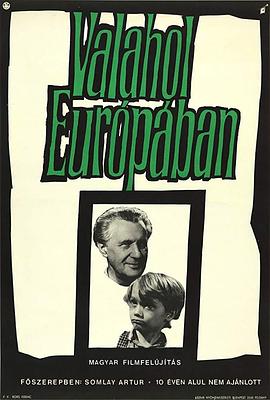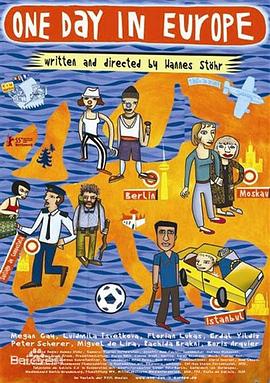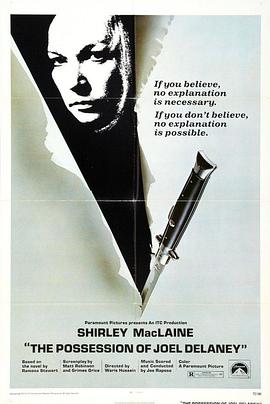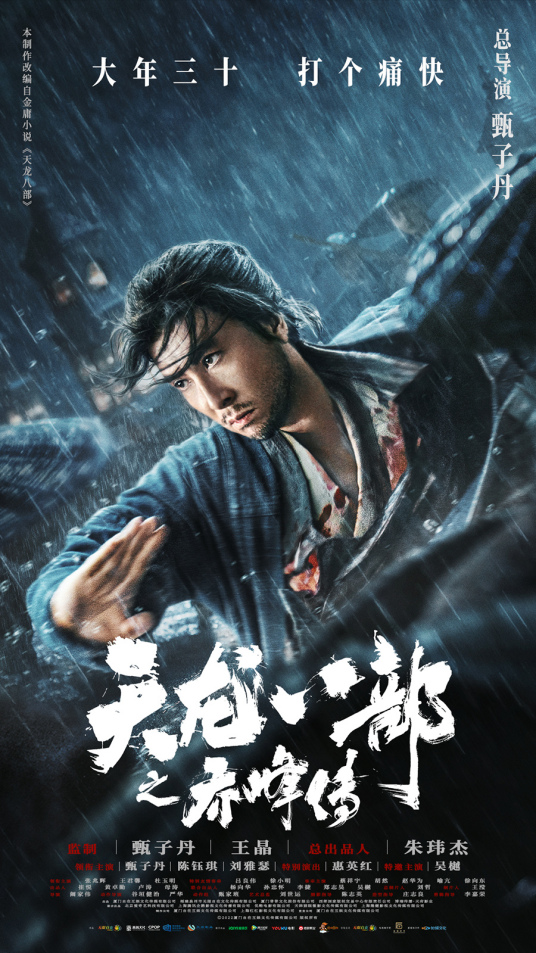Somewhere in the remote region, the war ends. In the midst of ruined cities and houses in the streets, in rural hamlets, everywhere where people still live, are children who have lost their homes and parents. Abandoned, hungry, and in rags, defenseless and humiliated, they wander through the world. Hunger drives them. Little streams of orphans merge into a river which rushes forward and submerges everything in its path. The children do not know any feeling; they know only the world of their enemies. They fight, steal, struggle for a mouthful of food, and violence is merely a means to get it. A gang led by Cahoun finds a refuge in an abandoned castle and encounters an old composer who has voluntarily retired into solitude from a world of hatred, treason, and crime. How can they find a common ground, how can they become mutual friends The castle becomes their hiding place but possibly it will also be their first home which they may organize and must defend. But even for this, the price will be very high. To this simple story, the journalist, writer, poet, scriptwriter, movie director, and film theoretician Béla Balázs applied many years of experience. He and the director Géza Radványi created a work which opened a new postwar chapter in Hungarian film. Surprisingly, this film has not lost any of its impact over the years, especially on a profound philosophical level. That is to say, it is not merely a movie about war; it is not important in what location and in what period of time it takes place. It is a story outside of time about the joyless fate of children who pay dearly for the cruel war games of adults. At the time it was premiered, the movie was enthusiastically received by the critics. The main roles were taken by streetwise boys of a children's group who created their roles improvisationally in close contact with a few professional actors, and in the children's acting their own fresh experience of war's turmoil appears to be reflected. At the same time, their performance fits admirably into the mosaic of a very complex movie language. Balázs's influence revealed itself, above all, in the introductory sequences an air raid on an amusement park, seen in a montage of dramatic situations evoking the last spasms of war, where, undoubtedly, we discern the influence of classical Soviet cinematography. Shooting, the boy's escape, the locomotive's wheels, the shadows of soldiers with submachine guns, the sound of a whistle—the images are linked together in abrupt sequences in which varying shots and expressive sharp sounds are emphasized. A perfectly planned screenplay avoided all elements of sentimentality, time-worn stereotypes of wronged children, romanticism and cheap simplification. The authors succeeded in bridging the perilous dramatic abyss of the metamorphosis of a children's community. Their telling of the story (the scene of pillaging, the assault on the castle, etc) independently introduced some neorealist elements which, at that time, were being propagated in Italy by De Sica, Rossellini, and other film artists. The rebukes of contemporary critics, who called attention to formalism for its own sake have been forgotten. The masterly art of cameraman Barnabás Hegyi gives vitality to the poetic images. His angle shots of the children, his composition of scenes in the castle interior, are a living document of the times, and underline the atmosphere and the characters of the protagonists. The success of the picture was also enhanced by the musical art of composer Dénes Buday who, in tense situations, inserted the theme of the Marseilaise into the movie's structure, as a motive of community unification, as an expression of friendship and the possibility of understanding. Valahol Europaban is the first significant postwar Hungarian film. It originated in a relaxed atmosphere, replete with joy and euphoria, and it includes these elements in order to demonstrate the strength of humanism, tolerance, and friendship. It represents a general condemnation of war anywhere in the world, in any form.
关联推荐
猜你喜欢
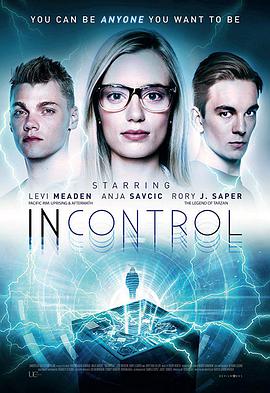 7.0正片布列塔尼·艾伦 菲利普·莱维茨基 Incontrol follows a group of university students who discover a device that allows them to take cont
7.0正片布列塔尼·艾伦 菲利普·莱维茨基 Incontrol follows a group of university students who discover a device that allows them to take cont 正片Adrián Suar I Cannot Live Without You centres on a successful middle-aged executive addicted to his devices whos
正片Adrián Suar I Cannot Live Without You centres on a successful middle-aged executive addicted to his devices whos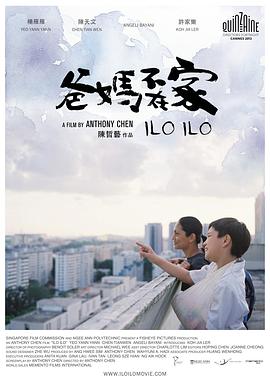 6.0HD杨雁雁 陈天文 安吉莉·芭雅妮 许家乐 Peter Wee Jo Kukathas Naomi Toh Stephanie Kiong Jia Min Chantel Teo Zhi Fang Xu Sea Moi Lee James Ng Sook Fen Wong Siow Phing Tan Aizuddiin Nasser 家乐(许家乐 饰)是个聪明却调皮捣蛋被学校视为头痛份子的小孩,怀孕的母亲(杨雁雁 饰)每天在公司和家事两边忙碌分身乏术的情况下,还会接到学校的抱怨电话总是相当无奈,最后只好找来菲律宾女佣泰莉(安吉莉·
6.0HD杨雁雁 陈天文 安吉莉·芭雅妮 许家乐 Peter Wee Jo Kukathas Naomi Toh Stephanie Kiong Jia Min Chantel Teo Zhi Fang Xu Sea Moi Lee James Ng Sook Fen Wong Siow Phing Tan Aizuddiin Nasser 家乐(许家乐 饰)是个聪明却调皮捣蛋被学校视为头痛份子的小孩,怀孕的母亲(杨雁雁 饰)每天在公司和家事两边忙碌分身乏术的情况下,还会接到学校的抱怨电话总是相当无奈,最后只好找来菲律宾女佣泰莉(安吉莉·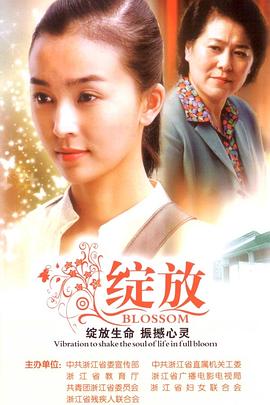 8.0HD中字姚星彤 顾琴烨 由中国残疾人联合会等单位联合摄制的2008年残奥会献礼片。该片讲述残疾人艺术团团长方颂扬在巡演中发现了极具艺术天赋的盲女月明,便邀请月明参加艺术团的演出,面对这个不可多得的盲人钢琴人材,爱才心切的
8.0HD中字姚星彤 顾琴烨 由中国残疾人联合会等单位联合摄制的2008年残奥会献礼片。该片讲述残疾人艺术团团长方颂扬在巡演中发现了极具艺术天赋的盲女月明,便邀请月明参加艺术团的演出,面对这个不可多得的盲人钢琴人材,爱才心切的 更新HD国语王仁君 王志飞 刘智扬 胡兵 张一山 孙维民 李幼斌 董玥 邹先煜 《古田军号》是庆祝中华人民共和国成立70周年献礼影片。影片用真诚的艺术表达和创新的手法,以一个红军小号手的视角,讲述了红军从井冈山突围到闽西期间,年轻的革命领袖带领年轻的红军,在绝境中探索真理,开
更新HD国语王仁君 王志飞 刘智扬 胡兵 张一山 孙维民 李幼斌 董玥 邹先煜 《古田军号》是庆祝中华人民共和国成立70周年献礼影片。影片用真诚的艺术表达和创新的手法,以一个红军小号手的视角,讲述了红军从井冈山突围到闽西期间,年轻的革命领袖带领年轻的红军,在绝境中探索真理,开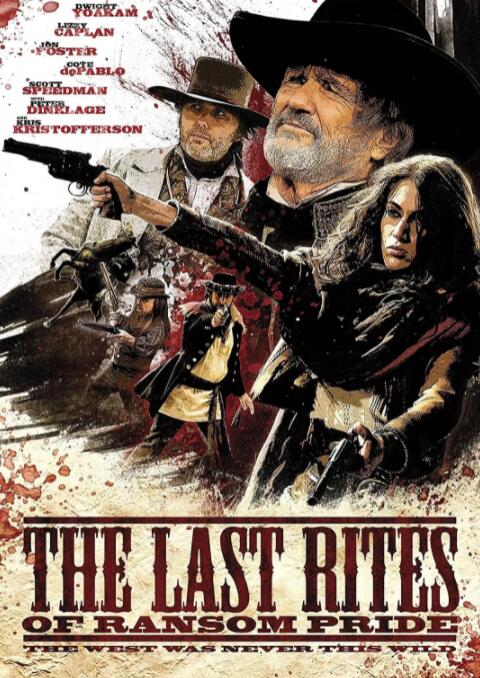 正片德怀特·尤科姆 丽兹·卡潘 乔恩·福斯特 科特·德·巴勃罗 杰森·普雷斯利 W·厄尔·布朗 彼特·丁拉基 斯科特·斯比德曼 克里斯·克里斯托佛森 布鲁·曼库马 Joe Bird Alfonso Quijada Rene Quijada Maddie Duke Philana B. Morin 一位名叫Juliette Flowers的女子发誓要把爱人Ransom Pride尸体从墨西哥运回位于德克萨斯的家。路上她不仅遇到了野蛮的赏金猎手,还遇到了凶残的牧师。幸好她有暹罗双胞胎,散弹枪矮人和
正片德怀特·尤科姆 丽兹·卡潘 乔恩·福斯特 科特·德·巴勃罗 杰森·普雷斯利 W·厄尔·布朗 彼特·丁拉基 斯科特·斯比德曼 克里斯·克里斯托佛森 布鲁·曼库马 Joe Bird Alfonso Quijada Rene Quijada Maddie Duke Philana B. Morin 一位名叫Juliette Flowers的女子发誓要把爱人Ransom Pride尸体从墨西哥运回位于德克萨斯的家。路上她不仅遇到了野蛮的赏金猎手,还遇到了凶残的牧师。幸好她有暹罗双胞胎,散弹枪矮人和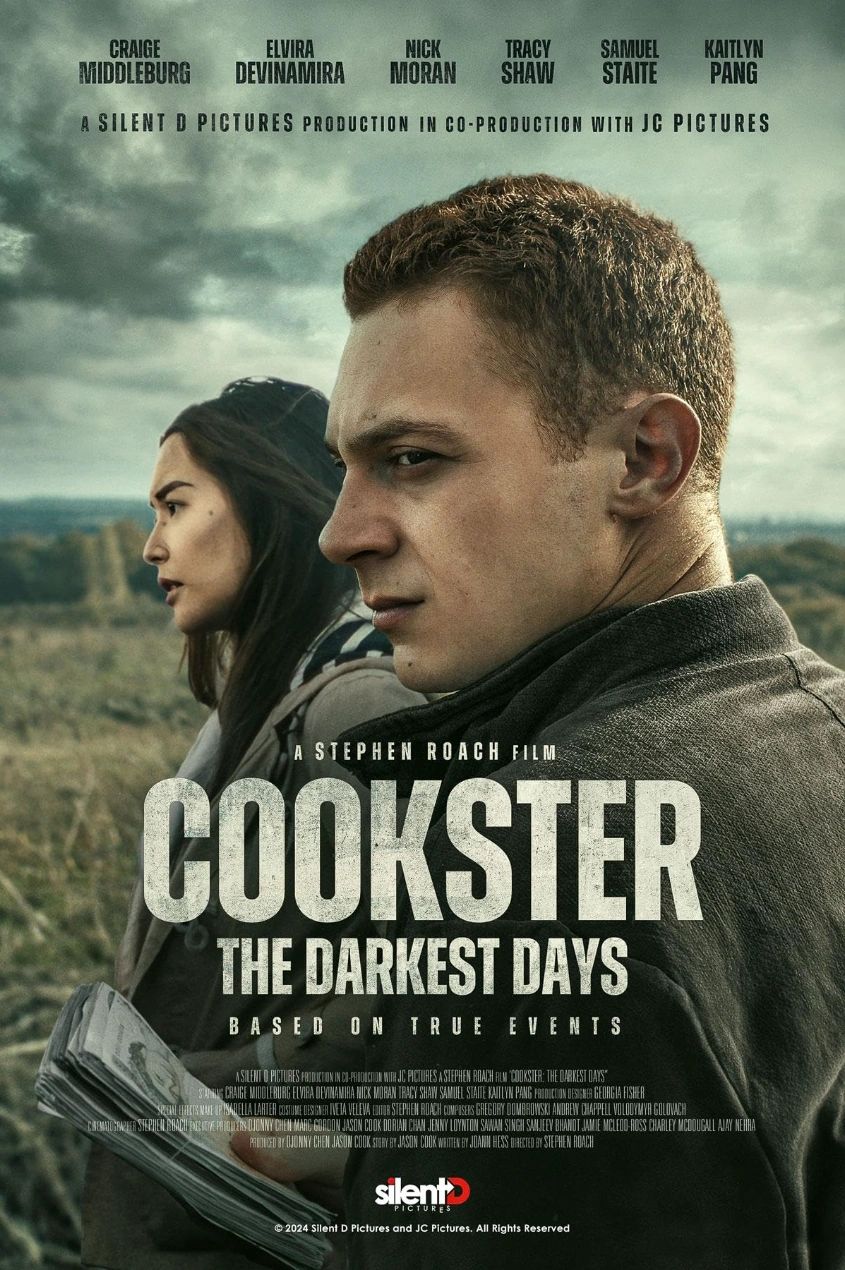 正片克雷格·米德尔伯格 尼克·莫兰 特雷西·肖 《至暗时刻》是一部非常独特的英国独立犯罪剧情片,改编自杰森·库克的真实故事。它并非典型的英国犯罪电影,而是一部层次丰富的影片,探讨了毒瘾、同辈压力、阅读障碍、注意力缺陷多动障碍、校园霸凌和家庭问题等诸
正片克雷格·米德尔伯格 尼克·莫兰 特雷西·肖 《至暗时刻》是一部非常独特的英国独立犯罪剧情片,改编自杰森·库克的真实故事。它并非典型的英国犯罪电影,而是一部层次丰富的影片,探讨了毒瘾、同辈压力、阅读障碍、注意力缺陷多动障碍、校园霸凌和家庭问题等诸 10.0更新1(超清)理查·基尔 苏珊·萨兰登 蒂姆·罗斯 布里特·马灵 莱蒂西娅·卡斯塔 内特·派克 斯图尔特·马戈林 克里斯·埃吉曼 格雷登·卡特 布鲁斯·奥尔特曼 拉里·派恩 寇蒂斯·库克 雷格·E·凯蒂 菲利斯·索利斯 蒂波·费德曼 60岁的罗伯特·米勒(理查·基尔RichardGere饰)是个事业有成的亿万富翁,备受业界尊重和家人崇拜。然而这都是表象,实际上他不仅私自在公司的账目上动手脚以掩盖投资损失和欺诈嫌疑,还背着妻子在外偷
10.0更新1(超清)理查·基尔 苏珊·萨兰登 蒂姆·罗斯 布里特·马灵 莱蒂西娅·卡斯塔 内特·派克 斯图尔特·马戈林 克里斯·埃吉曼 格雷登·卡特 布鲁斯·奥尔特曼 拉里·派恩 寇蒂斯·库克 雷格·E·凯蒂 菲利斯·索利斯 蒂波·费德曼 60岁的罗伯特·米勒(理查·基尔RichardGere饰)是个事业有成的亿万富翁,备受业界尊重和家人崇拜。然而这都是表象,实际上他不仅私自在公司的账目上动手脚以掩盖投资损失和欺诈嫌疑,还背着妻子在外偷 更新HD国语彭禺厶 钟紫心 妃小美 张熙若 李洛伊 霄蕾 狄拉与姐妹4人生活在一起,每天晚上都以特殊的方式演绎着自己的狂欢。一次剧组生活中一直梦想演绎特工的叶铭与狄拉相识并一见钟情,自此一路追随着狄拉姐妹团的生活。这样的生活却因为狄拉的性情大变而打乱,姐妹四
更新HD国语彭禺厶 钟紫心 妃小美 张熙若 李洛伊 霄蕾 狄拉与姐妹4人生活在一起,每天晚上都以特殊的方式演绎着自己的狂欢。一次剧组生活中一直梦想演绎特工的叶铭与狄拉相识并一见钟情,自此一路追随着狄拉姐妹团的生活。这样的生活却因为狄拉的性情大变而打乱,姐妹四
